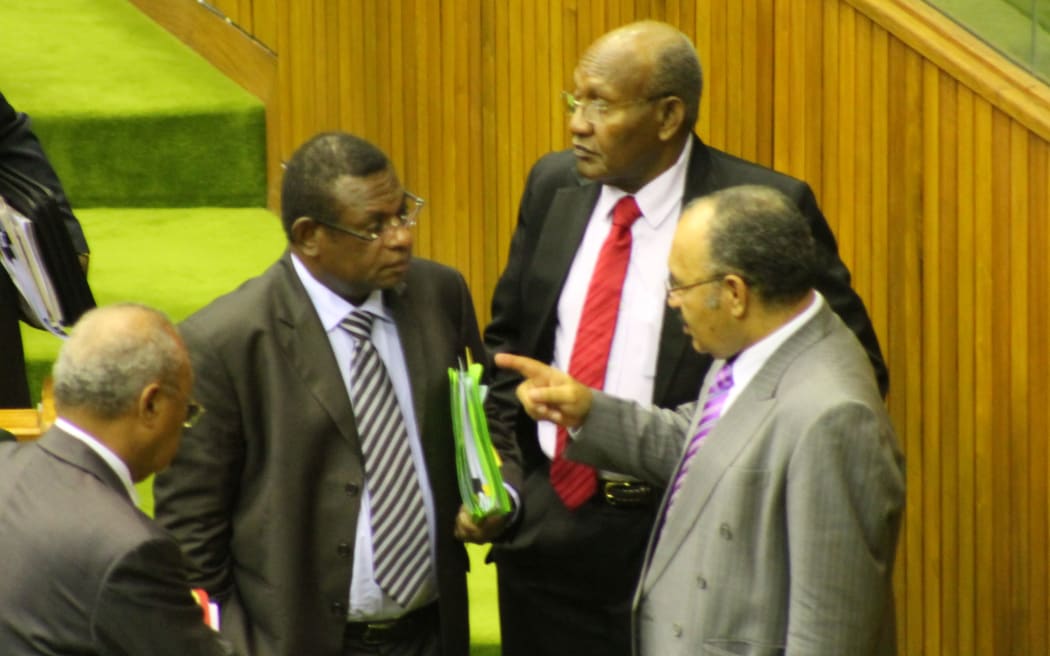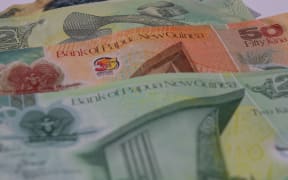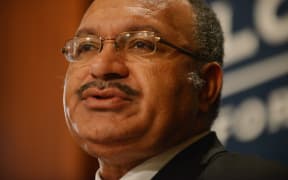Papua New Guinea's $US6.6 billion US dollar 2017 budget chops back on capital investment but continues the Peter O'Neill government's flagship policies of free education and healthcare.
In the budget tabled yesterday the government announced a cut in spending of 3.5 percent with revenue forecast to fall by 2 percent.
With the downturn in the economy, the government is cutting capital investment spending by 21 percent.
The provinces have received the largest share of the budget - more than a quarter of funds have been earmarked for various improvement programmes.

Patrick Pruaitch, (with documents), listens to PM Peter O'Neill, (far right) Photo: RNZI / Johnny Blades
The Treasurer Patrick Pruaitch also announced increases in tobacco and alcohol tax, a new progressive duty on unprocessed logs to encourage the processing industry and almost quadrupling departure tax.
The Additional Profits Tax has been extended from designated gas projects to cover the mining and petroleum sector.
Petroleum companies will benefit from a cut in their tax rate from 45 to 50 percent, to 30 percent.
$US79 million has been allocated for the controversial hosting of the meeting of APEC summit in 2018.
Economist calls PNG Budget fiscally fraudulent
An Australian economist, Paul Flanagan, who has worked as an advisor to PNG's Treasury, has called the PNG budget 'fiscally fraudulent.'
He said the numbers put forward by the PNG Treasurer, Patrick Pruaitch, are not realistic.
Mr Flanagan, speaking to the ABC says a critical factor is the sharp decline in commodity prices after the PNG government had gambled on oil prices staying high.
He said the result is a severe fiscal crisis.
"So this is a country of 8 million people, two and a half million live in absolute poverty, which is starting to really face a cash crisis, because they can't generate the money anymore domestically through tax revenue, they can't borrow the money domestically," Mr Flanagan said.
"So this budget is primarily reaching out and hoping the international community will lend them funds through a sovereign bond or some similar instrument."



